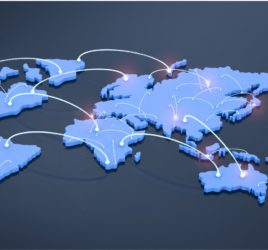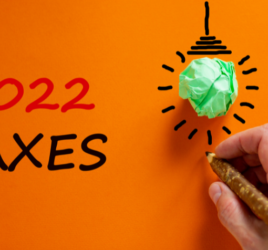
Understanding your tax code
We’ve all heard the old adage ‘there are only two things certain in life: death and taxes, and while trying to understand your taxes might feel like it’s sending you to an early grave, fear not, we here at Accountants Plus are taxation specialists.
To help you in the first step of understanding taxes, let’s start with your individual tax code.
Tax codes only apply to individuals and you need a tax code if you receive a salary, wages, benefit, pension, or any other income which has tax taken out before you get paid. Each source of income you receive will have its own tax code. It’s your responsibility to let your employer know what your tax code is for the income you earn from the. You will do this by filling out an IR330 form which has a flowchart attached to help you determine your personal tax code. If you fail to provide an IR330 to your employer, they will tax you at the higher non-declaration rate of 45%. And if you’re income situations change – for example your second job now becomes your full-time job – your tax code will change and you need to tell your employer or payer of this change.
Your tax code all depends on your situation
Your main income
You have one tax code for your main income. The code you use for this income depends on the type and amount of your main income.
Your secondary income
If you have more than one source of income, you use a secondary tax code for your other income.
Secondary tax codes and rates from 1 April 2021
| Estimated annual total income from all sources | Secondary tax code for the second source of income |
| $14,000 or less | SB |
| Between $14,001 and $48,000 | S |
| Between $48,001 and $70,000 | SH |
| Between $70,001 and $180,000 | ST |
| Over $180,000 | SA |
Do you have a student loan?
If you have a student loan you use a specific tax code that tells your employer to deduct your repayments.
Once you’ve paid off your loan you need to get a new tax code and tell your employer what it is.
Are you getting schedular payments?
Use the WT tax code for income from schedular payments.
Are you a casual agricultural worker?
Use the CAE tax code if you do casual agricultural work. Casual agricultural workers are people who do casual seasonal work on a day-to-day basis, for up to three months. This includes shearers and shearing shed hands.
Are you a recognised seasonal worker?
Use the NSW tax code if you’re a recognised seasonal worker, or hold a work visa as foreign crew of a vessel fishing New Zealand waters.
Are you helping with election day work?
Use the EDW tax code for income from election day work.
Individual tax codes might seem daunting but don’t worry too much if you get them wrong. IRD monitors taxes and if they notice that you are using an incorrect tax code, they will contact your payer or your employer to make the appropriate change. This is a good thing because if you’re being incorrectly taxed it runs the risk of you being taxed more than you should, and it also prevents you from paying too little and ending up with a surprise tax bill at the end of the year. But if you’re still unsure about how to tackle your own tax, have no fear! We offer services to help you.
At Accountants Plus we offer the full range of Taxation Services. We appreciate that taxation can be a major cost to your business, so we will work in partnership with you to help you minimise your tax and achieve your key financial objectives.
Our team has in-depth knowledge of the tax laws, rules, and regulations. Our expertise enables us to guide and help our clients make informed business decisions. We have considerable experience and a proven track record in handling people’s taxation needs.



